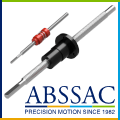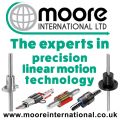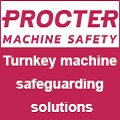
Posted to News on 11th Jun 2020, 09:47
Fundamentals of servo motors in process control
Long "takes', when done properly, can be masterstrokes of cinema. However, just a single mistake can mean scrapping a significant amount of footage, and that is expensive. To ensure filming equipment can keep up with a director's cinematic vision, cameras must perform precise and perfectly repeatable actions. Here, Dave Walsha, of mechatronic drive system supplier EMS Ltd, explains how servo motors can help achieve process precision both on and off camera.
Servo motors are key components in gimbals, which help stabilise cameras and ensure smooth shots. Viewers of news programmes will be accustomed to spotting the automated camera systems that operate in front of the newsreader's desk, which seamlessly switch angle, pan and focus. Precise control isn't only a priority on a film set. On the shop floor of a manufacturing facility, automated production of all varieties also requires consistent, repeatable motion in many of its processes.
While there are many varieties of servo motors, their main feature is the ability to precisely control the position of their shaft. This is due to servo motors being used in closed-loop systems, meaning that, when equipped with an encoder, they can use position feedback to control motion and final position. We all know that encoders work, in simple terms, by reading the information from a positional sensor, normally mounted on the rear shaft of the motor. Using this information, the drive system can track the position of the motor and how far and fast it is travelling. Encoders can have varying levels of precision, from tracking the position every time the motor turns once up to thousands of discrete positions per revolution. Precision is essential when assembling electrotonic components, and one slight misstep could reduce the performance of a part. Servo motors are present in many different steps of automated electronics production, including dosing of thermal paste and positioning systems in robotics arms.
Another advantage of using servo motors for position control functions is that they can be customised to each application using a variety of ancillary products. Speed controllers and motion controllers allow the end-user to specifically modify speed and motion, while gearheads can adjust the torque to the application's requirements. In the film industry, this means that camera operators can program their equipment to follow the same path over multiple shots, no matter how much the operator moves.
This level of exacting precision is also sought-after in workshops and along repeatable production lines. Automated production lines can manufacture parts faster than manual lines, and their speed is only limited by the control mechanisms on the production line. By installing quality servo motors, directors and original equipment manufacturers can benefit from high levels of precision. For example, the FAULHABER BXT low profile brushless motors are amongst the best in their power density, but can also be equipped with high-performance GPT planetary gearheads to further increase torque output. Precision encoders can then be used to accurately monitor the position of the motor in step movement applications. Specific sizes and shapes for servo motors and their relevant gearboxes can also be critical to certain applications, meaning that off-the-shelf applications are not always suitable. For this reason, some suppliers, including EMS, offer bespoke production services to customise motors, gears and their envelopes to ensure that the component can fit the application. To guarantee continued quality EMS have design, production and testing all under one roof and only source parts from trusted suppliers.
Long "takes' are a marvel to observe and require precision, practice and controlled movement to perfect. However, while spectacular, they are not unique to the film industry: more and more sectors of manufacturing also require similar attributes to produce quality products. Positional control is becoming more critical than ever before, meaning it pays to have quality servo motors in applications. Learn more at www.ems-limited.co.uk.

































